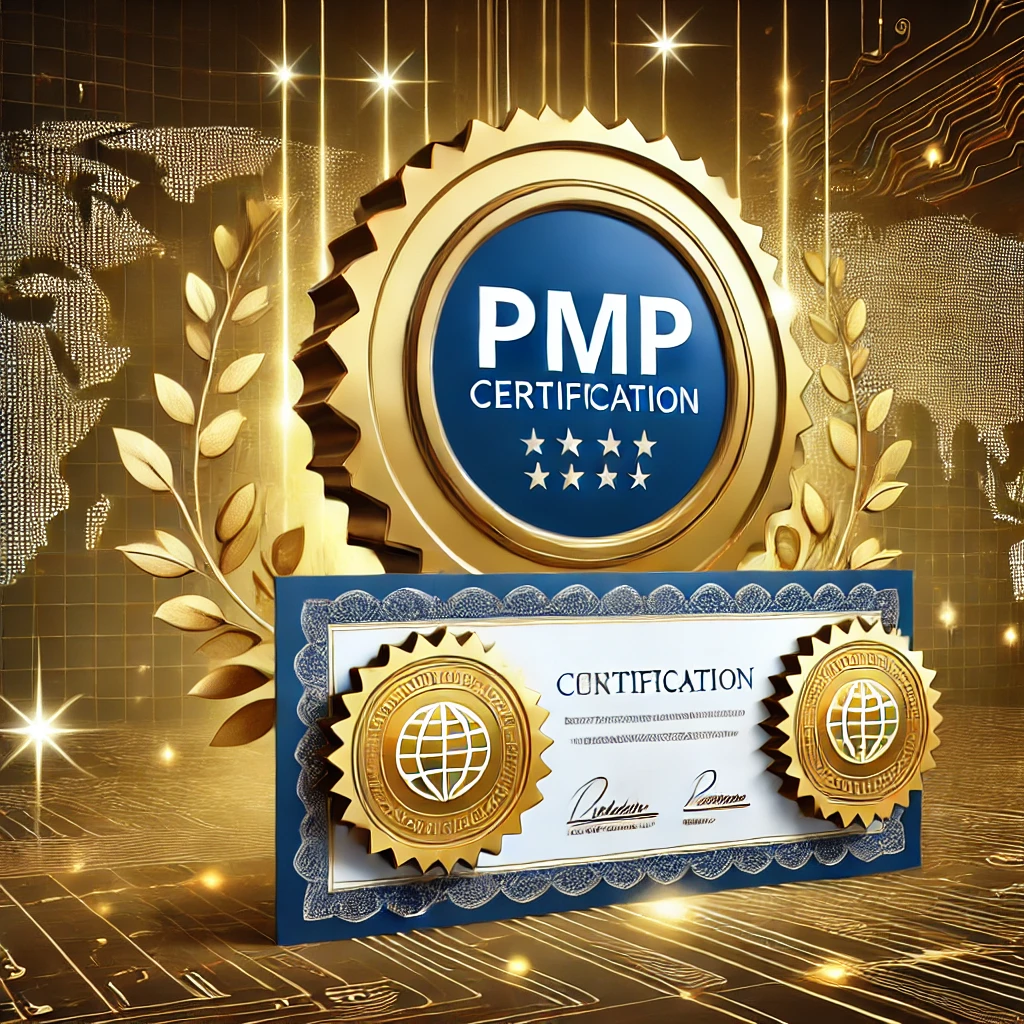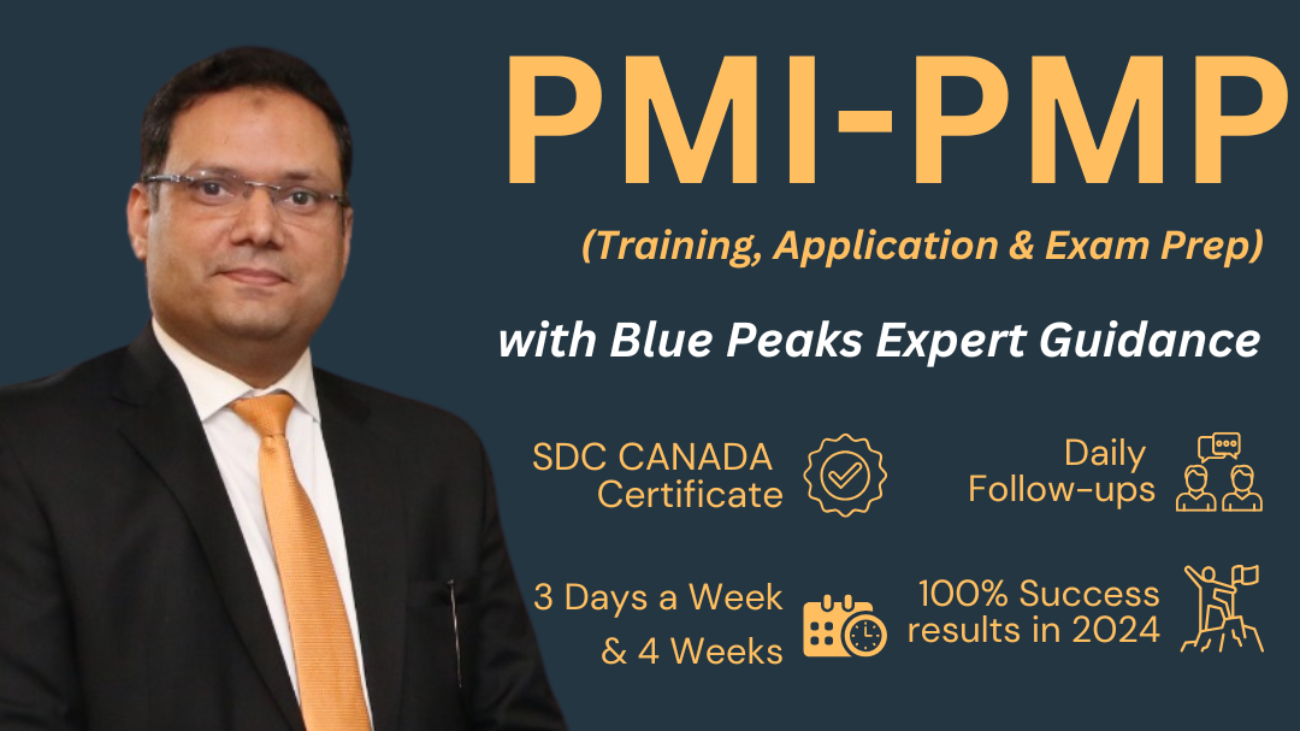In today’s fast-paced and globally connected world, professionals constantly seek ways to stand out. One of the most effective ways to gain an edge in project management is by earning the PMP® certification. But what is it, and why is its value soaring in 2025?
What is PMP® Certification?
Definition and Overview
The Project Management Professional (PMP®) certification, offered by the Project Management Institute (PMI), is the most recognized and respected credential for project managers globally. It validates a professional’s ability to manage projects efficiently within scope, time, and budget.
Who Issues PMP?
PMP® is issued by PMI, a not-for-profit organization founded in 1969. PMI sets the global standards for project management.
Prerequisites for Eligibility
To apply for PMP®, you need a combination of education and project management experience. Specifically, you must have:
- A four-year degree
- 36 months of project experience
- 35 hours of project management education/training or a CAPM® certification
Brief History of PMP® Certification
Origins of PMI®
The Project Management Institute (PMI) was founded with a clear mission: to standardize, formalize, and elevate the discipline of project management. Initially, it began as a small group of visionaries. Over the years, this group gradually evolved into a global professional body. Today, PMI boasts over 1 million PMP®-certified professionals worldwide.

THINK TANK
Evolution of the PMP® Credential
Since its launch in 1984, the PMP® certification has continuously evolved. Initially focused on traditional waterfall methodologies, it now includes:
- Agile approaches
- Hybrid models
- Predictive frameworks
As a result, PMP® remains industry-agnostic and methodology-inclusive. This ensures professionals are well-equipped to manage projects across IT, construction, healthcare, finance, and more.
Role of the PMBOK® Guide

Central to PMP® is the PMBOK® Guide (Project Management Body of Knowledge). Originally published in 1996, the guide has since gone through several editions to stay aligned with global best practices.
Specifically, it contributes:
- Standardized process groups and knowledge areas
- Clearly defined tools, techniques, inputs, and outputs (ITTOs)
- A unified language for global project managers
- Agile principles integrated in the 6th and 7th editions
As a result, the PMP® and PMBOK® Guide together have transformed project management into a measurable and strategic discipline. Collectively, they have professionalized the field, enabling practitioners to deliver outcomes with precision, predictability, and strategic value.
Why PMP® Matters in Today’s Business World
Standardizing Project Management
PMP® provides a common language and framework for managing projects. Consequently, this improves collaboration and efficiency across teams.
Global Recognition of PMP®
With recognition in over 200 countries, PMP® offers global job mobility and professional credibility.
Boosting Career Opportunities with PMP®
PMP® as a Career Accelerator
Professionals with PMP® stand out for leadership roles. In fact, it’s often required for mid- to senior-level positions.
In-Demand Skills Employers Seek
PMP®-certified professionals are trained in:
- Risk management
- Budgeting
- Agile techniques
- Communication strategies
Therefore, these are exactly the skills employers are prioritizing in 2025.
PMP® Certification & Salary Uplift
Earning a PMP® certification isn’t just a milestone—it’s a strategic investment in your career. In fact, according to industry surveys, PMP® significantly increases earning potential.
Salary Comparison: PMP® vs. Non-PMP®
Specifically, PMI’s Earning Power: Project Management Salary Survey (12th Edition) shows that PMP®-certified professionals earn considerably more than their peers.
Why PMP® Professionals Earn More
Several key factors contribute to the increased earnings of PMP® holders:
- Global Recognition: The PMP® is not limited by geography—it’s recognized across 200+ countries. As a result, it offers global mobility and cross-border career advancement.
- Validation of Skills: PMP® demonstrates a professional’s ability to lead and manage projects using global best practices. Consequently, it adds strong credibility to one’s resume.
- Employer Preference: Organizations often prefer PMP®-certified managers because they are trained in risk management, budgeting, resource optimization, and stakeholder engagement.
- Eligibility for Senior Roles: Moreover, many high-paying roles—such as Program Manager, PMO Director, or Portfolio Manager—list PMP® as a required or preferred credential.
Global Salary Highlights
| Country | PMP Salary (Avg.) | Uplift Over Non-PMP |
|---|---|---|
| United States | $123,000 | +25% |
| Canada | CAD 110,000 | +22% |
| UAE | AED 300,000 | +18% |
| India | INR 2,000,000 | +20% |
| Pakistan | PKR 3,000,000+ | +25% |
Enhanced Project Management Skills
Manage & Deliver Projects Effectively
PMP® training enhances leadership, communication, and risk management. For example, certified professionals learn to:
- Communicate across all stakeholder levels
- Resolve conflicts and guide teams
- Manage project risks proactively
- Foster collaboration and drive decisions
These soft skills are vital to long-term project success.

Manage & Deliver Projects
🔹 Gain Technical Project Knowledge
In addition to leadership skills, PMP® also develops strong technical expertise. Professionals gain practical tools to manage project scope, schedule, cost, and quality. For example, key tools include:
- Work Breakdown Structures (WBS)
- Gantt Charts and Critical Path Method (CPM)
- Earned Value Management (EVM)
- Procurement workflows and resource plans
As a result, PMP®-certified professionals can confidently lead complex projects across any industry.
Why the Importance of PMP® Is Rising in 2025
Today, the PMP® is becoming one of the most valuable credentials for professionals worldwide. Whether you’re managing IT projects, construction, or digital campaigns, PMP® certification proves that you can lead projects from start to finish.
What Makes PMP® So Valuable?
- Global Recognition: Respected across industries and borders
- Higher Salaries: Earn up to 25% more
- Career Growth: A must-have for senior roles
- Validated Skillset: Mastery of project scope, time, cost, and risk
- Organizational Impact: Drives efficiency and better project outcomes
Is PMP® Right for You?
If you’re a project manager—or planning to become one—PMP® will set you apart. You’ll join a global community of professionals who speak the same project language.

How to Get Started
To earn your PMP®, you’ll need:
- A four-year degree
- 36 months of project experience
- 35 hours of project management education (or a CAPM® certification)
After meeting the requirements, prepare with bootcamps, study guides, and practice exams.

PMP® Orientation Session Batch-56
https://drive.google.com/file/d/1F6tQZc1pji11gOQvV55gZB9HJofVgcab/view?usp=drivesdk
Why the Importance of PMP Certification Is Rising in 2025
In today’s competitive job market, the Project Management Professional (PMP) certification is quickly becoming one of the most valuable credentials for professionals looking to boost their careers. Whether you’re managing tech projects, construction builds, or marketing campaigns, being PMP-certified clearly shows the world that you’re capable of leading complex projects from start to finish
What Makes PMP So Valuable?

- Global Recognition
The PMP license is recognized across industries and countries, making it a must-have for professionals aiming to work internationally or with global teams. - Higher Salaries
PMP-certified professionals earn up to 25% more than their non-certified peers, according to PMI’s 2023 report. - Career Growth
Many organizations require a PMP license for senior project management roles. It’s a ticket to better job titles and leadership opportunities. - Validated Skillset
PMP proves you know how to manage scope, time, cost, risk, and communication skills that are essential to any project’s success. - Organizational Benefits
Companies with project management professional teams report more successful projects, improved timelines, and better budget management.
📌 Final Thoughts
In a competitive world, the importance of PMP continues to grow. Whether you’re seeking promotions, switching industries, or leading larger teams, becoming a PMP-certified professional opens new doors and solidifies your role as a trusted project management professional.
🔍 FAQs
Q1. What industries benefit most from PMP?
A: IT, construction, finance, healthcare, and government all value PMP-certified professionals.
Q2. Is PMP better than other PM certifications?
A: The PMP license is considered the gold standard due to its rigorous standards and global recognition.
Q3. How long is the PMP exam?
A: The exam is 180 questions and lasts about 3.5 hours.
Q4. How much does PMP cost?
A: PMI members pay around $405, while non-members pay $555.
Q5. Can I take the PMP exam online?
A: Yes, PMI now offers an online proctored exam option.
Q6. Do I need to renew PMP?
A: Yes, your PMP license must be renewed every 3 years by earning 60 PDUs (Professional Development Units).
CREATED BY ZAIN MALIK | BLUE PEAKS CONSULTING

 Cart is empty
Cart is empty 
Add a Comment